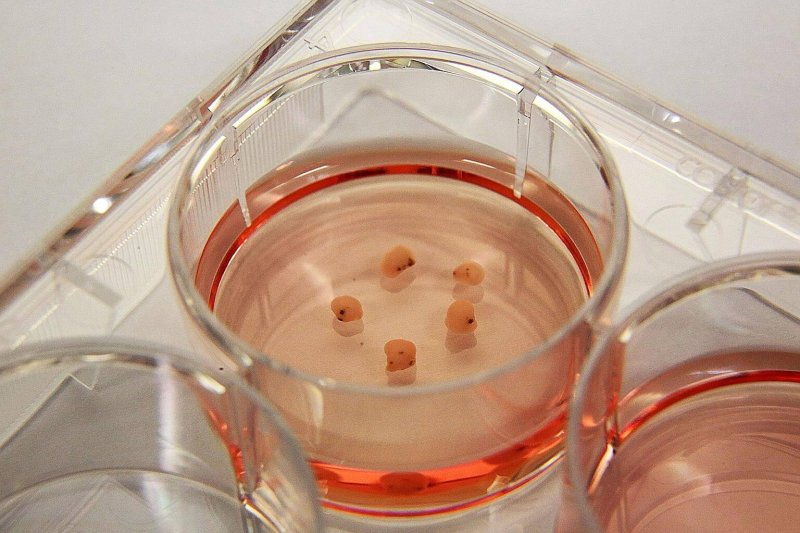…
This is just the beginning, says [researcher Madeline] Lancaster. Researchers such as Rudolph Jaenisch at MIT and Guo-li Ming at Johns Hopkins are beginning to use brain organoids to investigate autism, schizophrenia, and epilepsy. What makes cerebral organoids particularly useful is that their growth mirrors aspects of human brain development. The cells divide, take on the characteristics of, say, the cerebellum, cluster together in layers, and start to look like the discrete three-dimensional structures of a brain. If something goes wrong along the way—which is observable as the organoids grow—scientists can look for potential causes, mechanisms, and even drug treatments.
The GLP aggregated and excerpted this blog/article to reflect the diversity of news, opinion, and analysis. Read full, original post: Brain Organoids – A new method for growing human brain cells could unlock the mysteries of dementia, mental illness, and other neurological disorders.































